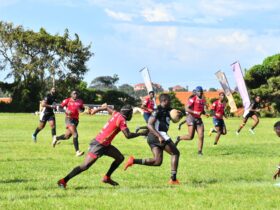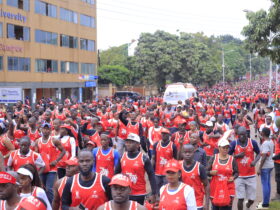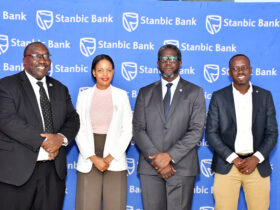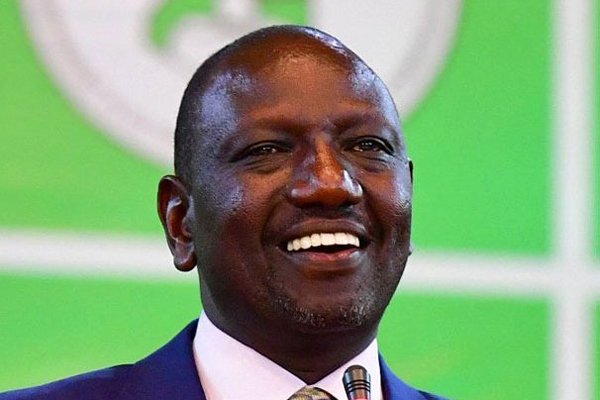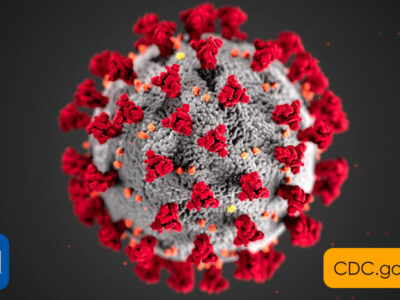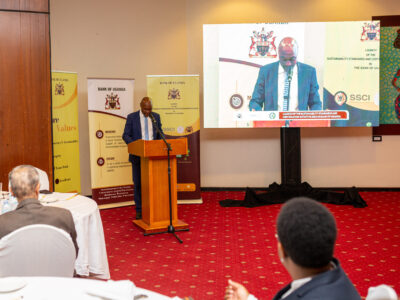Kenya’s Supreme Court on Monday ruled that William Ruto was the validly elected president of Kenya, sending a sigh of relief to the hitherto anxious supporters of the former deputy president who contested as the candidate for Kenya Kwanza Alliance.
Ruto was declared the winner of the tightly fought race, scraping to victory by a narrow margin of less than two percentage points against Raila Odinga, a veteran opposition politician now backed by the ruling party.
Odinga filed a petition to Kenya’s top court last month, alleging fraud in the vote tallying process and claiming he had “enough evidence” to show he had in fact won the August 9 election, which ranks as one of Africa’s most expensive polls.
However, all the seven judges of the country’s apex court in a unanimous decision delivered Monday said they were not persuaded by the evidence adduced by Mr Odinga in court before dismissing his petition.
The judges dismissed Odinga’s allegation that the standards of IEBC’s technology failed the test during the electoral process.
“Whereas it is true that KIEMS Kit failed in 235 polling stations, 86,889 voters were granted the right to vote manually and the requisite forms 32A were successfully filled. IEBC relied on sworn affidavits by Michael Ouma, Moses Sunkuli and Hussein Marjan on August 26, 2022 which were to the effect that it published the interim report by KPMG on 8th June 2022 and embarked on remedial measures aimed at effecting the recommendations ahead of the publication of the final report. While the audit report was released to the public seven days before elections, the voter register was used without any apparent anomalies,” said Kenya’s Chief Justice Martha Koome who read the abridged version of the court decision on behalf of other judges, and said the full judgment would be given after 21 days.
On whether there was interference with the uploading and transmission of Forms 34A, Justice Koome said that there was no credible evidence meeting standard of proof was adduced by petitioners to proof that there was interference in transmission of forms from polling stations to the National Tallying Centre.
“No credible evidence meeting standard of proof was adduced by petitioners. The scrutiny report did not reveal any security breaches of IEBC’s systems. There were no significant differences captured between the forms 34A uploaded on the public portal & physical forms 34A delivered to Bomas that would have affected the overall outcome of the presidential election,” she said.
Citing former journalist and corruption whistle-blower Mr John Githongo’s affidavit and lawyer Julie Soweto’s presentations in court Chief Justice Martha Koome said “Affidavits filed in court must only deal with facts… swearing to falsehoods is a criminal offence.”
According to court, the petitioners did not table any credible evidence of hacking of IEBC systems as they had alleged.
“Scrutiny report also did not reveal any breaches,” Chief Justice Koome added.
On whether the postponement of some elections resulted in voter suppression, CJ Koome said IEBC illustrated with examples “to our satisfaction that there was no nexus between the postponement of elections and voter turnout.”
On whether there were unexplainable discrepancies between the votes cast for presidential candidates and other elective positions, CJ Koome said there were no unexplained significant discrepancies.
“No ballot stuffing was proven,” she added.
As to whether the IEBC chairperson acted unilaterally in tallying and verifying presidential votes at the national tallying centre CJ Koome said the power to verify and tally presidential election results vest not in the IEBC chairperson but the commission; however the four commissioners actively participated in the verification and tallying process.
On the opaque allegations by the four IEBC commissioners, CJ Koome said “Are we to nullify an election on the basis of a last-minute boardroom rupture? To do this would be tantamount to subjecting the sovereign will of the Kenyan people to the quorum antics of IEBC, this we cannot do. We find that the power to tally and verify is not in the chairperson of IEBC but the commission. We also find that the chairperson cannot arrogate the power to tally and verify the results to the Elections Act to the exclusion of other commissioners. That said, we however take cognizance that the four commissioners actively participated in the tallying and verification exercise from the beginning until just before declaration of the final results by the chairperson. We note that aside from their 11th hour walkout, the four commissioners have not placed before this court any document to show the elections result was altered.”
It’s against this background that CJ Koome upheld the election of Mr Ruto who campaigned under the ‘hustler nation’ slogan as the fifth president of the East African nation.
“We declare the election of Ruto as valid. It is our finding that the declared President-Elect (Ruto) acquired 50 percent plus one vote required by the Constitution,” she said.
‘We just want jobs’
In several towns in Kenya, the verdict sparked celebrations among Ruto supporters, who cheered and banged plastic buckets in jubilation.
Elsewhere in Nairobi, stony-faced Odinga supporters expressed their disappointment, with a group of women telling AFP: “Not all of us are happy.”
But with the economy in the doldrums, many Kenyans said they were relieved to see an end to the political drama so business could pick up again.
“This announcement enables us to move on (with our lives)”, said Caroline, a 30-year-old flower seller in the capital.
“We just want jobs,” she told AFP.
Ben Hunter, Africa analyst at risk intelligence group Verisk Maplecroft, said in a note that “any protests by Odinga’s followers… will not translate into prolonged unrest, despite international concerns of widespread violence”.
“The unanimity of the legal ruling and the ongoing economic crisis will dampen the appetite for conflict,” he added.
In Odinga’s stronghold of Kisumu, where protests broke out last month following the results’ announcement, messages calling for peace were plastered on walls and pinned to poles as police patrolled the streets.
“We don’t want trouble because we have realised we are the ones who suffer,” said Nelima Atieno, a seller of second-hand clothes.
Minibus driver Kevin Omolo echoed her views, telling AFP: “We don’t want people to demonstrate.”
“We can’t change the verdict even though it is painful.”
Voter disillusionment
After 2017’s annulment, the IEBC was under heavy pressure to deliver a clean poll.
But this year’s outcome sparked a rift within the IEBC itself, with four of its seven commissioners accusing chairman Wafula Chebukati of running an “opaque” process.
Chebukati denied the allegations, insisting he carried out his duties according to the law of the land despite facing “intimidation and harassment”.
Since 2002, no presidential poll outcome in Kenya has gone uncontested.
At around 65 percent, turnout was sharply lower than in the August 2017 election, with observers saying it reflected growing disillusionment among citizens.
Odinga, who previously said he was cheated of victory in the 2007, 2013 and 2017 polls, had framed the legal battle as a fight “for democracy and good governance”.
Ruto in turn had urged the court to toss out the petition, accusing Odinga of trying “to have another bite at the cherry through a judicially-forced re-run”.
The 2017 poll saw dozens of protesters killed at the hands of police.
Kenya’s worst electoral violence occurred after the 2007 vote, when more than 1,100 people died in politically motivated clashes involving rival tribes.
Ruto will be sworn in on September 13, becoming Kenya’s fifth president since independence from Britain in 1963 and taking the reins of a country beset by inflation, high unemployment and a crippling drought.
Additional reporting by AFP



